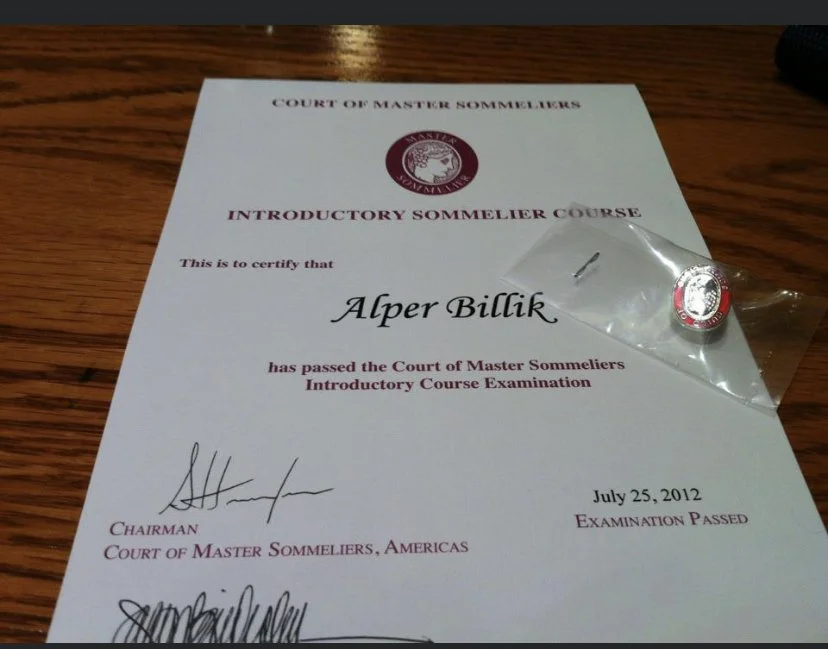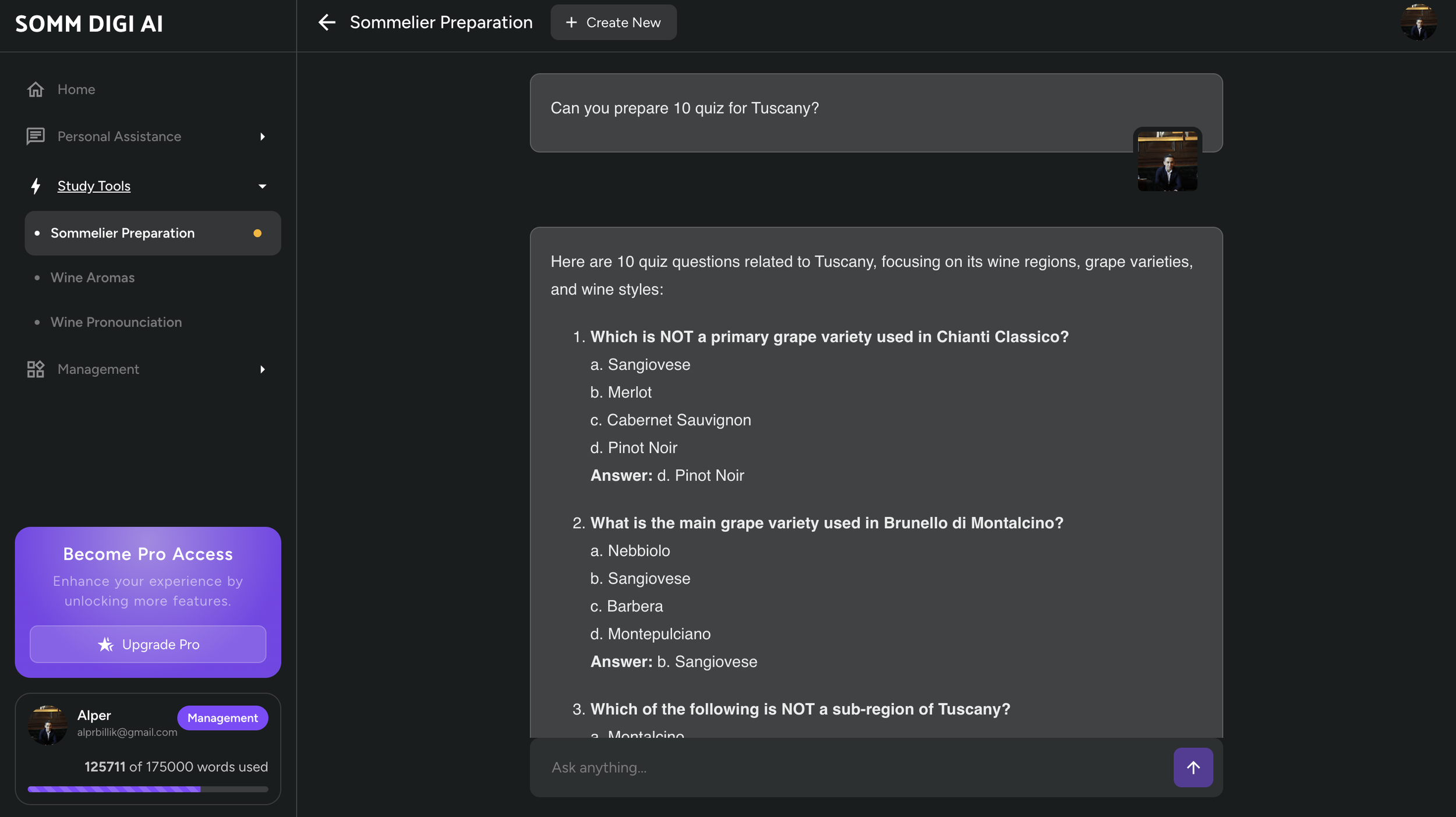Beginner Sommelier; Level 1 Sommelier Practice Test
I still remember the moment I passed my Introductory Sommelier exam at the Napa American Culinary School in 2012. It was my first sommelier certification, and I was thrilled to achieve this milestone.
In this blog, I’ll share some valuable wine resources to help you prepare for and pass this exam.
By the end of the post, you’ll have a clear idea of the types of questions you might encounter. Additionally, I’ll include a 100-page eBook covering key topics for aspiring sommeliers at the Introductory level.
Why Do You Need This Intro Sommelier Certificate?
Before I share some exam tips, here’s my friendly advice: take this certificate for yourself, not to impress anyone else. It’s not that hard, but it’s not easy either. You’ll need to invest your time to learn, practice, and keep improving your sommelier skills. The great thing about this certification is that it helps you build those skills throughout the journey.
What Are the Requirements for This Level?
The Introductory Sommelier level is the entry point of the Court of Master Sommeliers. The good news? It doesn’t require intense wine knowledge, so you can start from zero and build your foundation.
If you’re planning to learn about wine, this is a great goal to aim for. As I mentioned, learning about wine is a journey, and this certificate gives you a clear direction on where to focus and how to deepen your knowledge.
What Wine Topics Should You Focus On for the Introductory Sommelier Level?
When I was preparing for the Introductory Sommelier exam, I focused deeply on key topics like major wine regions, grape varieties, geography, and even river names. For me, the key was pushing myself to learn more than just the basics, so I’d feel confident and ready.
My strategy for studying wine wasn’t traditional. Instead of going step-by-step—like focusing on Italy one day and France the next—I kept it mixed. I didn’t concentrate on countries but on major wine regions globally. This approach worked well for me, but it might not suit everyone.
Regardless of your strategy, the most important thing is to dedicate time to learning. Focus on understanding the basic concepts of wine and how to approach it like a sommelier. The Introductory Sommelier level is all about building this foundation to guide your journey.
Here Are Some Example Questions for the Introductory Sommelier Level
SOMM DIGI AI is the first sommelier AI designed to help sommeliers pass exams at any level. Try it free for 3 days!
To help you prepare, here are some example questions generated by SOMM DIGI AI. These questions are designed to inspire and guide your studies for the Introductory Sommelier certification.
Please note, these are not actual exam questions but can give you an idea of where to focus your efforts as you prepare for this level.
Multiple Choice
Which of the following grape varieties is primarily used in the production of Sauternes?
a) Sauvignon Blanc
b) Semillon
c) Muscat
d) Chardonnay
True/False
The term "Brut" on a Champagne label indicates that the wine is sweet.
Matching
Match the wine region to its primary grape variety:
Barossa Valley →
Mosel →
Chianti →
Mendoza →
Scenario-Based
A guest orders a grilled ribeye steak and asks for a wine pairing. Which of the following would you recommend and why?
a) Pinot Noir
b) Cabernet Sauvignon
c) Sauvignon Blanc
d) Riesling
Label Analysis
You see a wine label that says "Chablis Premier Cru."
What is the primary grape variety used in this wine?
Which region does it come from?
Sequence Ordering
Arrange the following steps of traditional method sparkling wine production in the correct order:
a) Tirage (adding yeast and sugar for secondary fermentation)
b) Riddling
c) Disgorgement
d) Base wine fermentation
Wine Label Identification
What does the term "Passito" on an Italian wine label indicate about the wine's production method?
Open-Ended Question
Explain the principles of food and wine pairing. Why do acidic wines pair well with fatty dishes?
Multiple Choice
Which of the following regions is known for producing high-quality Syrah-based wines?
a) Chablis
b) Côte-Rôtie
c) Barolo
d) Marlborough
Introductory Level Question Formats and Study Mindset
I’ve shared a few different question formats here, but at the Introductory Sommelier level, you’ll primarily encounter multiple-choice questions. These example questions are generated by SOMM DIGI AI for the Introductory level to help you prepare even more effectively.
Always remember: don’t learn about wine just to pass the exam. Learn it for yourself. Treat the exam as part of your overall journey. If you follow this mindset, you could become an advanced sommelier within 3-5 years.
Where to Study for the Introductory Sommelier Level
I’ve organized all the key topics into a detailed blog and created a dedicated page on this website. You can check it anytime for guidance. Click the page to explore all the topics!
SOMM DIGI AI LEVEL 1
This book was generated with SOMM DIGI AI to help you study smarter.
Court of Master Sommeliers
The Court of Master Sommeliers is dedicated to helping hospitality professionals become wine professionals. Their sommelier level 1 course is especially helpful for those who want to improve their knowledge and gain confidence in wine service. It could be an excellent option for anyone interested in taking the first steps toward sommelier certification.
Through this introductory sommelier program, professionals will get a thorough overview of essential topics, such as grape composition, classic winemaking methods, terminology, labeling regulations, and more. It will provide them with the tools they need to better understand and describe wines, evaluate quality and price points, create appropriate pairings and develop wine lists that suit the needs of their clients.
Special Tip: The Court of Master Sommeliers Europe offers an amazing PDF that outlines how and where to study for each level, including Level 1. You can download this PDF for free from their website.
Download the CMS Europe Study Guide PDF
For more detailed insights, check out my blog post about this fantastic syllabus. Read the Blog
Ask about any wine region and get customized questions tailored to your needs. Learn faster and save time with SOMM DIGI AI!
Spirits
You should also consider that you might need to learn about spirits. Lastly, I'd like to give you a copy of the course outline for the Court of Master Sommeliers - Europe certification program. It has a lot of helpful information, so every sommelier should get it. To access the file you downloaded, click here.
SOMM DIGI LEVEL 1 SOMMELIER PRACTICE TEST
What type of fermentation is used to make Champagne?
a) Malolactic fermentation
b) Carbonic maceration
c) Méthode champenoise
d) None of the above
What is the correct way to pour a sparkling wine?
a) Tilting the glass at a 45-degree angle
b) Filling the glass to the top
c) Pouring down the side of the glass
d) None of the above
What is the primary grape variety used to make Sherry?
a) Tempranillo
b) Palomino
c) Grenache
d) Malbec
What is the term used to describe a wine that has high acidity?
a) Tannic
b) Crisp
c) Fruity
d) Full-bodied
What is the primary grape variety used to make Barolo wine?
a) Merlot
b) Nebbiolo
c) Pinot Noir
d) Sangiovese
What are the main grape varieties used to make the wine of Châteauneuf-du-Pape?
a) Grenache, Syrah, Mourvèdre
b) Cabernet Sauvignon, Merlot, Pinot Noir
c) Tempranillo, Garnacha, Graciano
d) Riesling, Gewürztraminer, Pinot Gris
In which region of Italy is the wine Brunello di Montalcino produced?
a) Tuscany
b) Piedmont
c) Veneto
d) Lombardy
What is the name of the grape variety used to make the fortified wine Madeira?
a) Malvasia
b) Tinta Roriz
c) Verdelho
d) Sercial
What are the main grape varieties used to make the wine of Barossa Valley?
a) Shiraz, Grenache, Mataro
b) Riesling, Gewürztraminer, Pinot Gris
c) Tempranillo, Graciano, Mazuelo
d) Cabernet Sauvignon, Merlot, Pinot Noir
In which region of France is the wine Hermitage produced?
a) Bordeaux
b) Burgundy
c) Rhône
d) Loire Valley
How should a bottle of red wine be decanted?
a) Quickly pour the wine into the decanter
b) Slowly pour the wine into the decanter to allow the sediment to settle
c) Decanting is not necessary for red wine
d) Decant the wine into a carafe and serve it immediately
A quest requests a wine that is low in alcohol content. What wine would you suggest?
a) Port
b) Sherry
c) Moscato d'Asti
d) Champagne
I hope reading this blog will help you prepare for the questions on the Sommelier Level 1 Exam.
Thanks for reading
Alper, Advanced Sommelier







